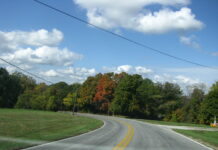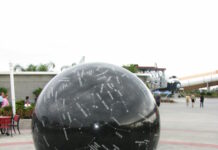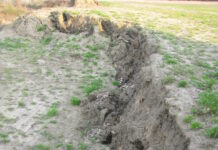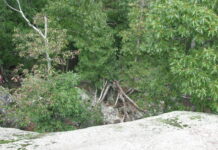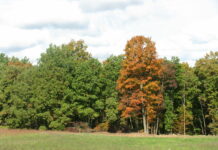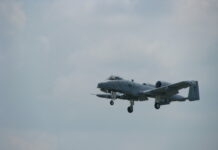Photo credit: DiasporaEngager (www.DiasporaEngager.com).
In the complex landscape of US higher education, a critical issue that often goes unexamined is the influence of radical ideologies on the academic and social environments. American students and some faculty advocates display a concerning naivety towards the ideologies they endorse, frequently lacking a comprehensive understanding of radical Islamic terrorism, fanaticism, Khomeinism, Shiite terrorism, the Muslim Brotherhood, and the extensive networks of transnational terrorism. This lack of awareness fosters an environment ripe for the spread of these harmful ideologies, which have been deeply rooted in American universities for decades.
The roots of this ideological infiltration trace back to the 1960s and 1970s, when Marxist-Leninist and Islamic leftists mounted significant protests against the Shah of Iran, then America’s steadfast ally in the Middle East, among others. These events marked a critical and consequential shift in international relations and Iran’s internal policies, notably when President Jimmy Carter initially praised Khomeini.
The tumultuous events of 1979 transformed Iran from a nation celebrated for its 7,000-year-old civilization into one subjected to religious and political Islamic tyranny. This shift endangered not only Iran’s cultural heritage and populace, but also destabilized the Middle East and escalated threats to global security. A severe miscalculation in Washington was the assumption that radical Islam could serve as a strategic countermeasure against the Soviet Union — a naive belief that overlooked the existing collaborations between various Islamic terrorist groups and Soviet interests, including those led by figures like Yasser Arafat.
This underestimation allowed radical ideologies, especially Khomeinism, empowered by Western miscalculations, to proliferate globally. Ironically, the Khomeini regime began its international engagement with an act of aggression — hostage-taking — which sharply contradicted the supportive expectations of figures like Carter.
Within the United States, several academics and students actively propagated these ideologies, sowing seeds of discord and demonstrating a profound ignorance of the destructive nature of the doctrines they espoused.
Over the past four and a half decades, the repercussions of these ideologies have been severe. Wars, chaos, and political instability have increased, supplanting what were once opportunities for peace and cooperation. Educational institutions, which should be bastions of learning and enlightenment, have at times devolved into platforms for promoting and defending reactionary and destructive ideologies. This has not only compromised the academic integrity of these institutions but also endangered the future of many young Americans, who remain largely unaware of the true nature of the forces shaping their perceptions.
Today, the regime of Iran’s dictator, Ayatollah Khamenei, continues to exploit these ideological vulnerabilities. His regime’s brutality and suppression of dissent find a perverse reflection in the turmoil apparent in American universities. The recent protests in Iran, resulting in the deaths of 700 individuals and the severe injury or imprisonment of hundreds more, starkly demonstrate the regime’s ruthless tactics. Alarmingly, these actions resonate with certain American student groups that unwittingly champion the causes of such a tyrannical regime.
This phenomenon raises pressing questions: Do these students truly understand the forces they support? Are they aware of the consequences of their actions? The support for entities like Hamas and the display of Hezbollah flags not only contravenes US policy, which categorically rejects terrorism, but also threatens the very principles of American democracy.
The infiltration of radical ideology into US and European educational and cultural institutions is not just widespread, but deeply ingrained. These entities are active not only in universities but also permeate the media, lobbying groups, research centers, think tanks, and even religious institutions. This deep-seated engagement poses a severe risk to the democratic fabric of American society, a risk that is compounded by the widespread nature of this infiltration and the subtlety with which it operates.
Moreover, the role of international media in educating the public about these dangers is often compromised, as it falls prey to the same propaganda it should be critiquing.
Furthermore, the ideological battle between Iran and the West is not confined to military or physical confrontations; it is a deeper, more pervasive war that seeks to undermine social norms, cultural heritage, and historical narratives. The youth in America, influenced by these sinister forces, are often caught up in disturbances that threaten not only their future but also the stability and security of the nation they call home.
For the youth of America, and indeed to all who value democracy and freedom, it is imperative to scrutinize the lessons history offers. Iran, once a beacon of culture and prosperity, now lies in ruins — a stark testament to the destructive power of radical ideologies. The Iranian people endure perpetual turmoil, with their resources squandered on sustaining terrorist activities that bring them nothing but suffering and despair.
Reflecting on these developments, it is clear that the challenges we face are not just about combating overt acts of terrorism, but involve recognizing and countering the subtle, pervasive spread of an ideology that seeks to destroy from within. It is about standing firm against propaganda, recognizing the true nature of our enemies, and ensuring that the values of liberty and democracy are upheld. The struggle is daunting but essential for the preservation of our way of life and the protection of future generations.
In this critical moment, let us recall the wisdom of our Founding Fathers and strive to protect the principles they established. Observing the misuse of these freedoms to promote terrorism and radical ideologies, particularly in educational institutions like Princeton where Hezbollah flags have been seen, is deeply troubling. These actions betray the principles upon which our nation was founded and on which it must continue to stand.
Erfan Fard is a counterterrorism analyst and Middle East Studies researcher based in Washington, DC. Twitter@EQFARD.
Source of original article: Erfan Fard / Opinion – Algemeiner.com (www.algemeiner.com).
The content of this article does not necessarily reflect the views or opinion of Global Diaspora News (www.GlobalDiasporaNews.com).
To submit your press release: (https://www.GlobalDiasporaNews.com/pr).
To advertise on Global Diaspora News: (www.GlobalDiasporaNews.com/ads).
Sign up to Global Diaspora News newsletter (https://www.GlobalDiasporaNews.com/newsletter/) to start receiving updates and opportunities directly in your email inbox for free.



